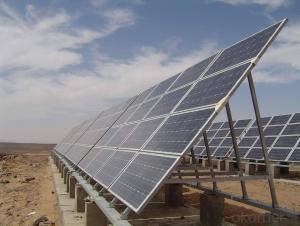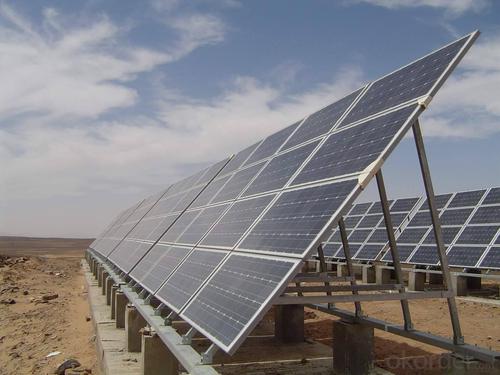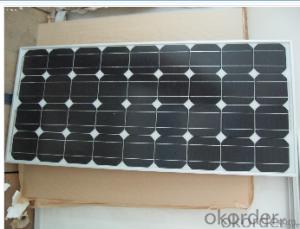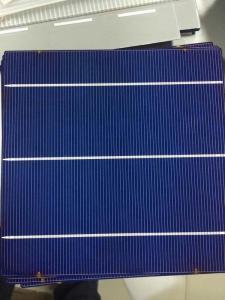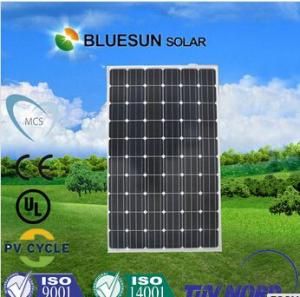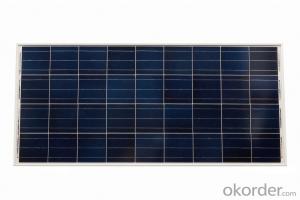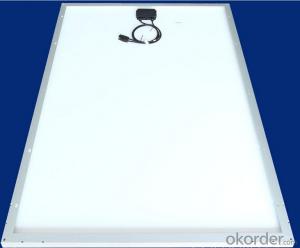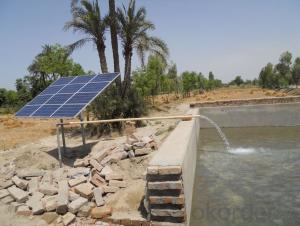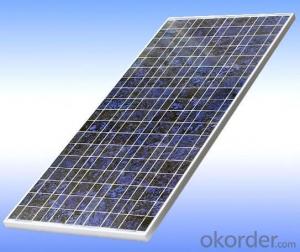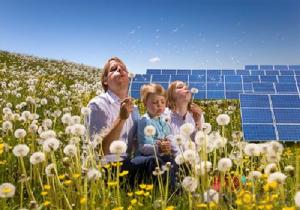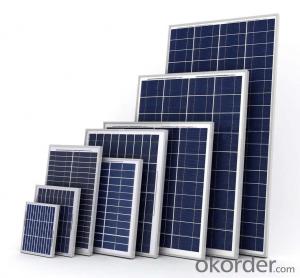UL and TUV Approved High Efficiency 20W Poly Solar Panels Columbus Ohio
- Loading Port:
- Shanghai
- Payment Terms:
- TT OR LC
- Min Order Qty:
- 10000 watt
- Supply Capability:
- 20000000 watt/month
OKorder Service Pledge
OKorder Financial Service
You Might Also Like
Specification
1.The Description of Product
Nowadays, with the shortage of the energy sources, people start to develop the solar energy, a new long lasting sources of energy which can be used almost anywhere. Why solar energy become so popular, we summarized the below some advantages of solar energy.
Type | CNBM Solar Polycrystalline Series |
Materials | Silicon |
Guarantee | 12 yrs free from defects in materials and workmanship No less than 90% within 10yrs and no less than 80% within 25yrs TUV(IEC61215&IEC61730), CE, UL |
Application | Photovoltaic/ solar/ green energy/ energy saving |
Descriptions | 1.High efficiency crystalline silicon solar cell. Even if under the weak light, the solar module can produce maximum power output. 2.Tempered glass (toughened glass): Anti-reflecting coating and high transmission rate glass increase the power output and mechanical strength of solar module. 3. EVA and TPT: Using high quality EVA and TPT to prevent destroying and water. 4. AI frame: Without screw, rner connection. 6 holes on the frame can be installed easily. 5. Junction box: Multi function junction box with water proof. 6. Long lifetime: ≥25 years; Less power decrease. 7. Good performance of preventing from atrocious weather such as wind and hails. 8. Resisting moisture and etching effectively, not effected by geology. 9. The certificate issued by international authority: UL, TUV, IEC, CE.
|
2.Production Line
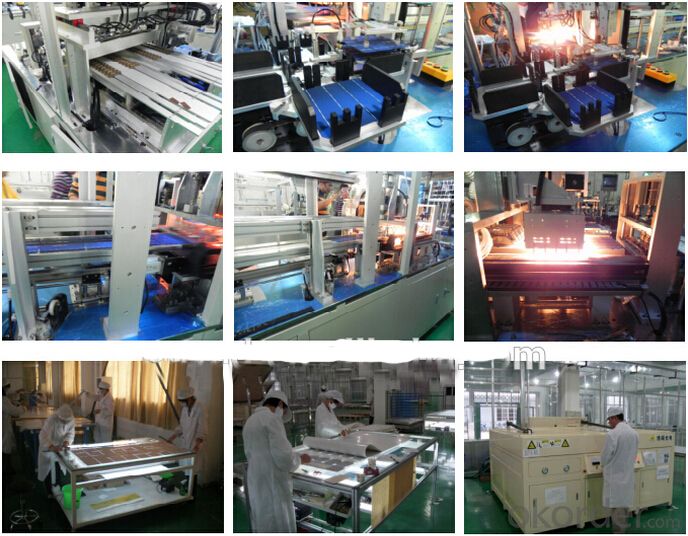
3.The Pictures of Solar Panels
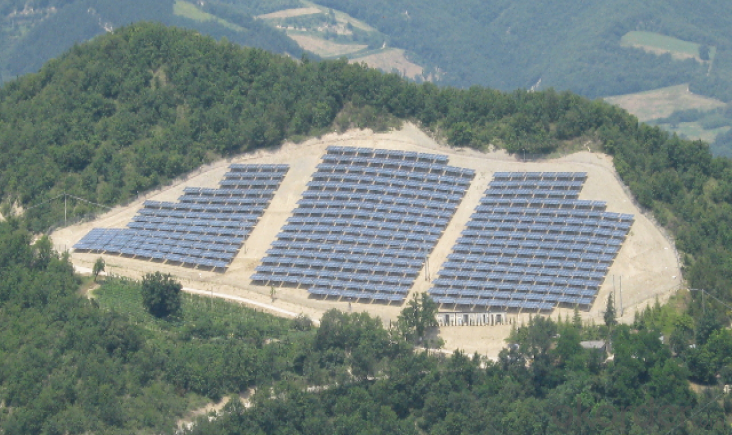
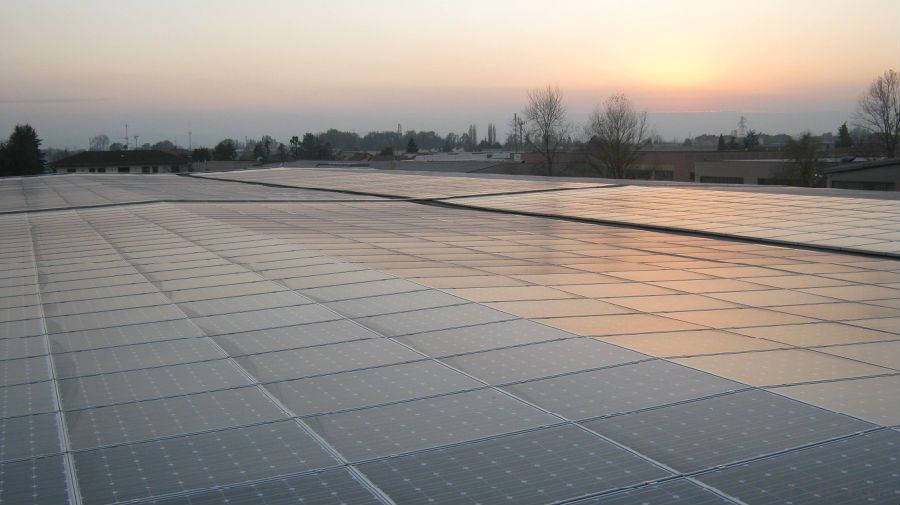
4.Packing
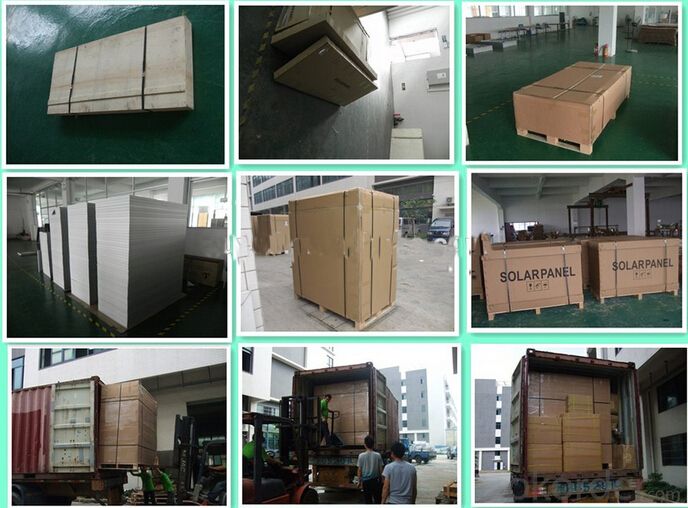
5.FAQ
1). How to buy?
Contact with the talking button.
2).Can you do OEM for us?
Yes, we can.
3). How long can we receive the product after purchase?
In the purchase of product within three working days, We will arrange the factory delivery as soon as possible. The perfect time of receiving is related to the state and position of customers. Commonly 7 to 10 working days can be served.
4). Can we visit your factory?
Sure, welcome at any time is believing.
- Q: I have a cabin that is way out in the middle of no where, it would cost 000's of dollars to get power to it. If I have a 8,000 BTU air conditioner that runs on 25 volts and 5 amps (or 875 watts)How many solar panels will I need to run this during the day, plus charge the batteries to run it all night? How many batteries would I need
- You are probably going to need about 60 panles and 60 batteries....you will also need a very good power inverter. Also consider the power it takes to invert 2 volt DC battery power in to 20 volts AC power required for an air conditioner. You might consider also trying to find a 2 or a 24 volt unit cooler. You would be better off buying a generator. Solar panels and batteries are not going to run an air conditioner for long if at all.....it might be cheaper to have the power company run the power.
- Q: What is the purpose of solar panels?
- The purpose of solar panels is to convert sunlight into usable electricity, providing a clean and renewable energy source for various applications such as powering homes, buildings, and even vehicles, while reducing dependence on fossil fuels and mitigating environmental impact.
- Q: HIToday i was using my BB gun and shot my dads solar panel. I want to fix it for him because he spent a lot of time trying to get the solar panels. All i broke was the glass on the front, what is the glass and where can i buy new glass for it?
- Note: he didnt buy them, we found them at a property that we bought
- Q: all i want to do is provide enough electricity for 2 fluorescent bulbs i was looking at some 80 watt panels how many of those would i need and what else do i need for storing the electricity for use at nite? and how much would it all cost?
- The solar panels are made in China because there are fewer environmental regulations and cheap coal power. It takes a lot of energy to melt silicon and there are toxic waste products. It would be three to five times more expensive to make the panels in the US ( three times is just for reprocessing the toxic wastes ). Solar cell made in China are about $2 a watt, perhaps as low as $ a watt but in truth the claims for $ a watt or less solar panels as in thin film solar panels have much lower efficiency and require perhaps ten times more surface area.
- Q: Can solar panels be installed on windows or glass surfaces?
- Yes, solar panels can be installed on windows or glass surfaces. There are specialized solar panels designed specifically for this purpose, known as transparent solar panels or solar windows. These panels are designed to allow light to pass through while still generating electricity.
- Q: What is the maintenance cost of solar panels?
- The maintenance cost of solar panels is relatively low. Regular cleaning and inspection are recommended to ensure optimal performance, but typically, the cost of maintenance is minimal compared to the savings generated by solar energy.
- Q: How do I clean my solar panels?
- To clean your solar panels, you can start by rinsing them with a garden hose to remove any loose dirt or debris. If there are tougher stains or bird droppings, use a soft sponge or cloth with mild soapy water to gently scrub the surface. Avoid using abrasive materials or harsh chemicals that could damage the panels. Additionally, make sure to turn off the system and use caution when climbing on the roof. Regular cleaning every few months can help maintain optimal performance of your solar panels.
- Q: i am doing this group project fro school. I would like to know if anybody knows anything about how to read a Spec. Sheet on Solar panels and where I could go to start researching them. Anything would be great!
- Rate ,power , voltage and effencicney are four important iterms to choose one battery.
- Q: Can solar panels be installed on tall buildings?
- Yes, solar panels can be installed on tall buildings. In fact, tall buildings are often ideal for solar panel installations as they typically have more available roof space to accommodate a larger number of panels. Additionally, being elevated, tall buildings are less likely to be obstructed by shading from surrounding structures or trees, maximizing their exposure to sunlight and optimizing energy generation.
- Q: how to market solar energy products?
- You'd better build some sample project. For e.g, if you mean solar water heater, install one pc on your roof, and make it generate hot water, and tell people about it.
Send your message to us
UL and TUV Approved High Efficiency 20W Poly Solar Panels Columbus Ohio
- Loading Port:
- Shanghai
- Payment Terms:
- TT OR LC
- Min Order Qty:
- 10000 watt
- Supply Capability:
- 20000000 watt/month
OKorder Service Pledge
OKorder Financial Service
Similar products
Hot products
Hot Searches
Related keywords
